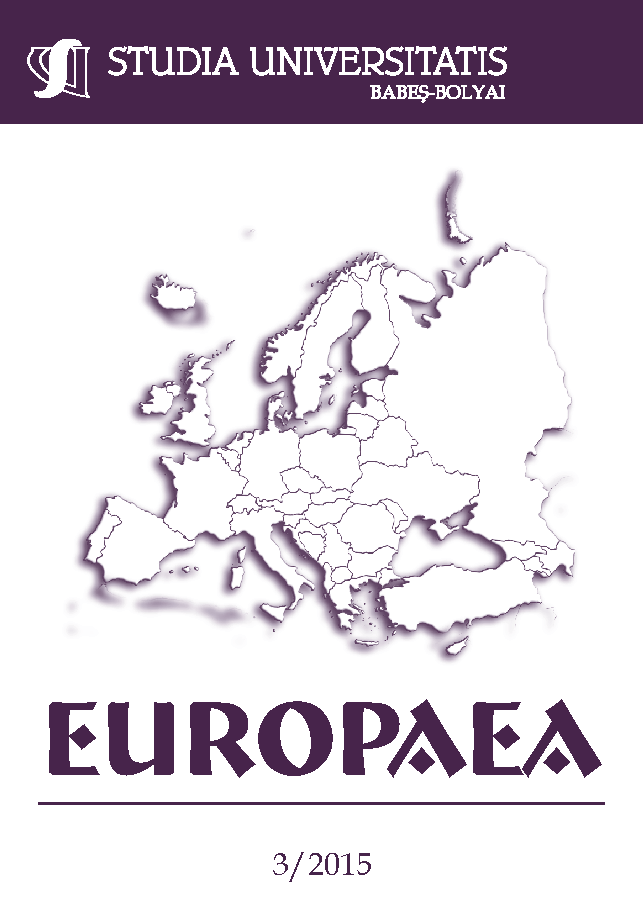WARFARE AND HUMAN (IN)SECURITY IN THE HORN OF AFRICA
Keywords:
Horn of Africa, warfare, security, regional hegemony, (Neo)realism, Human SecurityAbstract
The main purpose of this article is to show that certain postulates of Realist and Neorealist thinking in International Relations (IR) are not really applicable on the regional configurations in the Horn of Africa. The main goals herein are: 1) to identify and underline certain endemic sources of insecurity in the Horn of Africa and 2) to argue that state-centric views on security in this region do not offer solutions for the security of individuals. The main argument which will be built throughout this article is that (Neo)realist, state-centric approaches do not trigger the security of states (through counter-balancing configurations and territorial gains) in the Horn of Africa and that Human Security is a more appropriate framework for analysis in this case. Basically the argument is that powerful states mean different things when exploring different regions and the huge difference between highly militarized states (hence powerful in material terms), on the one hand, and weak states, on the other, needs to be emphasized.
References
Bayeh, Endalcachew (2014), “Human security in the Horn of Africa: Trends and Challenges”, International Journal of Multidisciplinary Research and Development, 2014; 1(7), 341-346.
Buzan Barry; Hansen, Lene (2009), The Evolution of International Security Studies, Cambridge, Cambridge University Press.
Campbell, David (1992), Writing Security. United States Foreign Policy and the Politics of Identity, Minneapolis: University of Minnesota Press.
Commission on Global Governance (1995), Our Global Neighbourhood, Oxford: Oxford University Press.
Commission on Human Security (2003), Human Security Now, Commission on Human Security, New York.
Herta, Laura M. (2014), “Humanitarian Intervention and Human Security – Sociological, Critical, and Constructivist Approaches to (In)security in Africa”, in Valentin Naumescu (ed.), Democracy and Security in the 21st Century: Perspectives on a Changing World, Newcastle upon Tyne, Cambridge Scholars Publishing, 343-381.
Herta, Laura M. (2014), “Intra-state violence in DR Congo and Human Security – Perspectives from International Relations Theories”, in Wolfgang Benedek, Vanda A. Dias, Lisa M. Heschl, Matthias C. Kettemann, Reinmar Nindler, Kalkidan N. Obse, Stefan Salomon (eds.), An African Spring? Human Rights and Security in Times of Change, European Training and Research Centre for Human Rights and Democracy (ETC), Graz, 186-218.
Human Development Report 1994 (1994), United Nations Development Programme (UNDP), New York, Oxford, Oxford University Press.
Hutchful, Eboe (1998), “Africa: Rethinking Security”, African Journal of Political Science, volume 3, number 1, June.
ICRC Annual Report 2011 (2011), Somalia, [http://www.icrc.org/], consulted in September 2013.
Keohane, Robert O. (ed.) (1986), Neorealism and its Critics, New York: Columbia University Press.
Lyons, Terrence; Khadiagala, Gilbert M. (eds.) (2008), Conflict Management and African Politics: Ripeness, Bargaining, and Mediation, New York: Routledge.
Mearsheimer, John J. (1995), “The False Promise of International Institutions”, International Security, Vol. 19, No. 3 (Winter, 1994-1995), 5-49.
Mearsheimer, John J. (2006), "Structural Realism," in Tim Dunne; Milja Kurki; Steve Smith (eds.), International Relations Theories: Discipline and Diversity, Oxford: Oxford University Press, 71-88.
Médecins sans Frontières, Assisting the Somali Population affected by the humanitarian crisis of 2011, [http://www.msf.org/], consulted in September 2013.
Menkhaus, Ken; Prendergast, John (1999), “Conflict and crisis in the Greater Horn of Africa”, Current History; May 1999; 98, 628, 213-217.
Mesfin Berouk (2011), “The Horn of Africa security complex”, in Roba Sharamo; Berouk Mesfin (eds.), Regional Security in the post-Cold War Horn of Africa, Monograph 178, 1-30.
Mouritzen, Hans (2005), “Kenneth Waltz: a critical rationalist between international politics and foreign policy”, in Iver B.Neumann; Ole Wæver, The Future of International Relations. Masters in the Making?, London and New York: Routledge, 71-95.
Newman, Edward (2010), “Critical human security studies”, Review of International Studies, 2010, 36, 77-94.
Rothschild, Emma (2007), “What is security?”, in Barry Buzan; Lene Hansen (eds.), International Security (volume III Widening Security), London, Sage Publications.
Rudloff, Peter (2013), “Offensive Realism, Defensive Realism, and the Role of Constraints”, The Midsouth Political Science Review, Volume 14, December 2013, 45-77.
Rupiya, Martin R.; Nhema, Alfred G. (2008), “A Regional Security Perspective from and for the Horn of Africa”, in Hans Günter Brauch; Úrsula Oswald Spring; Czeslaw Mesjasz; John Grin; Pál Dunay; Navnita Chadha Behera; Béchir Chourou; Patricia Kameri-Mbote; P. H. Liotta (eds.), Globalization and Environmental Challenges. Reconceptualizing Security in the 21st Century, New York, Berlin, Heidelberg: Spinger, 801-810.
Siebert, John (2009), “Human Security: Setting the Agenda for the Horn of Africa”, 2009, The Ploughshares Monitor, Summer 2009 Volume 30, Issue 2, [http://ploughshares.ca/pl_publications/human-security-setting-the-agenda-for-the-horn-of-africa/], consulted May 10, 2015.
Snyder, Glenn H. (2002), “Mearsheimer’s World—Offensive Realism and the Struggle for Security. A Review Essay”, International Security, Vol. 27, No. 1, Summer 2002, 149–173.
Swiss Agency for Development and Cooperation (SDC), [www.eda.admin.ch], consulted May 4, 2015.
Toft, Peter (2003), John J. Mearsheimer. An Offensive Realist between Geopolitics and Power, Institut for Statskundskab.
United Nations, United Nations Trust Fund for Human Security, Human Security Approach, [http://www.un.org/humansecurity/human-security-unit/human-security-approach], accessed July 2015.
Walt, Stephan (1991), “The Renaissance of Security Studies”, International Studies Quarterly, 35 (2), 211-139.
Waltz, Kenneth (1979), Theory of International Politics, Reading: Addison Wesley.
Waltz, Kenneth (2000), “Structural Realism after the Cold War”, International Security, Vol. 25, No. 1 (Summer 2000), 5–41.
Wasara, Samson S. (2002), “Conflict and State Security in the Horn of Africa: Militarization of Civilian Groups”, African Journal of Political Science, vol.7, no. 2, 39-60.
Weber, Cynthia (2006), International Relations Theory. A critical introduction, Second edition, London and New York: Routledge.
Wendt, Alexander (1999), Social Theory of International Politics, Cambridge: Cambridge University Press.
XXX, “Roundtable: The Battle Rages On. John J. Mearsheimer versus Paul Rogers, Richard Little, Christopher Hill, Chris Brown and Ken Booth”, in International Relations, 19(3), 2005, 337–360, [http://mearsheimer.uchicago.edu/pdfs/A0036.pdf], consulted in May 2015.
Zartman, William, (ed.) (1995), Collapsed States: The Humanitarian Challenge to the United Nations, Boulder: Lynne Rienner.
Downloads
Published
How to Cite
Issue
Section
License
Copyright (c) 2015 Studia Universitatis Babeș-Bolyai Europaea

This work is licensed under a Creative Commons Attribution-NonCommercial-NoDerivatives 4.0 International License.






